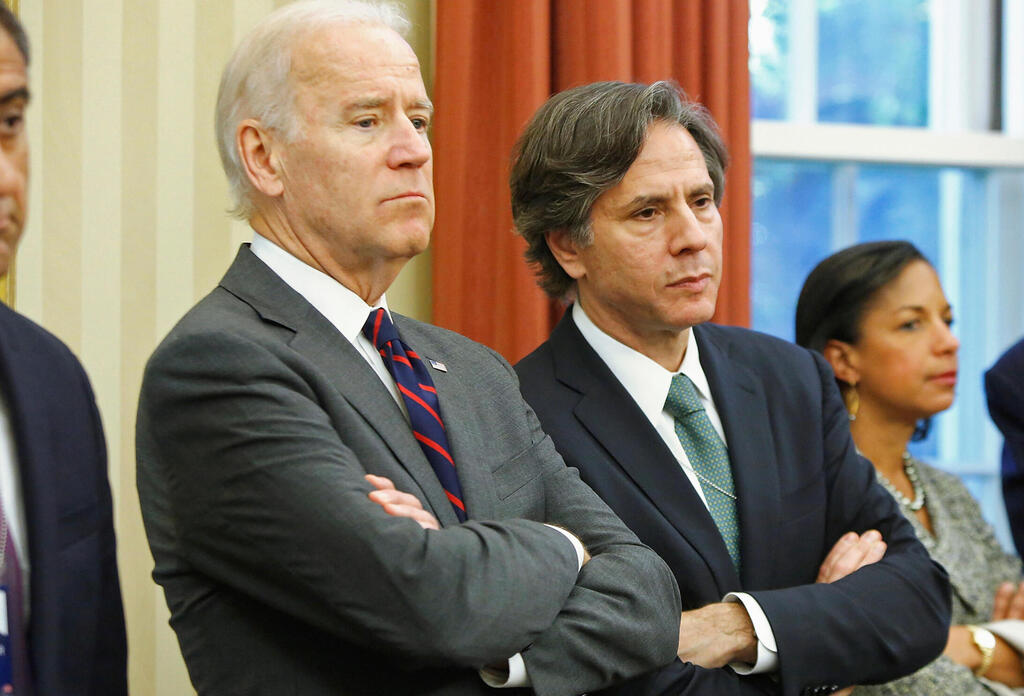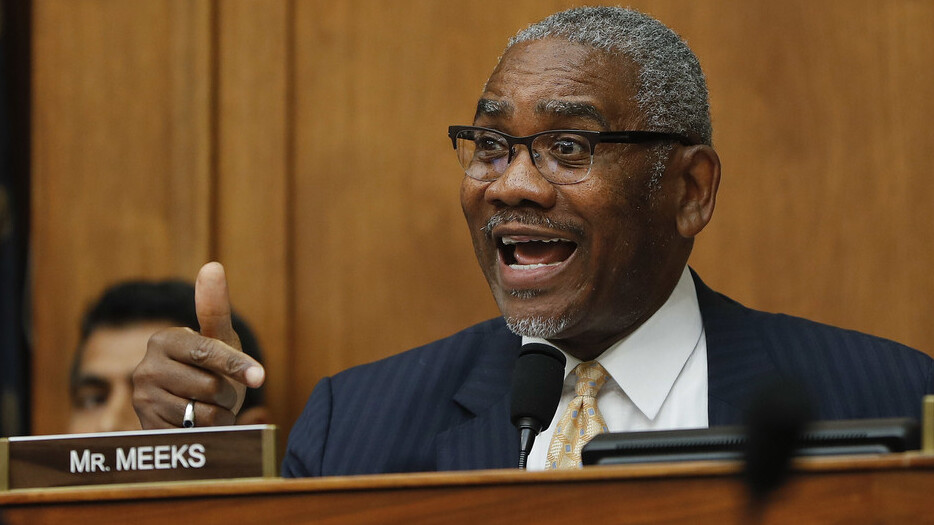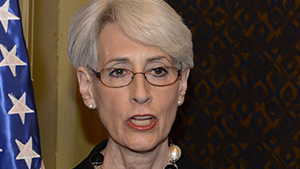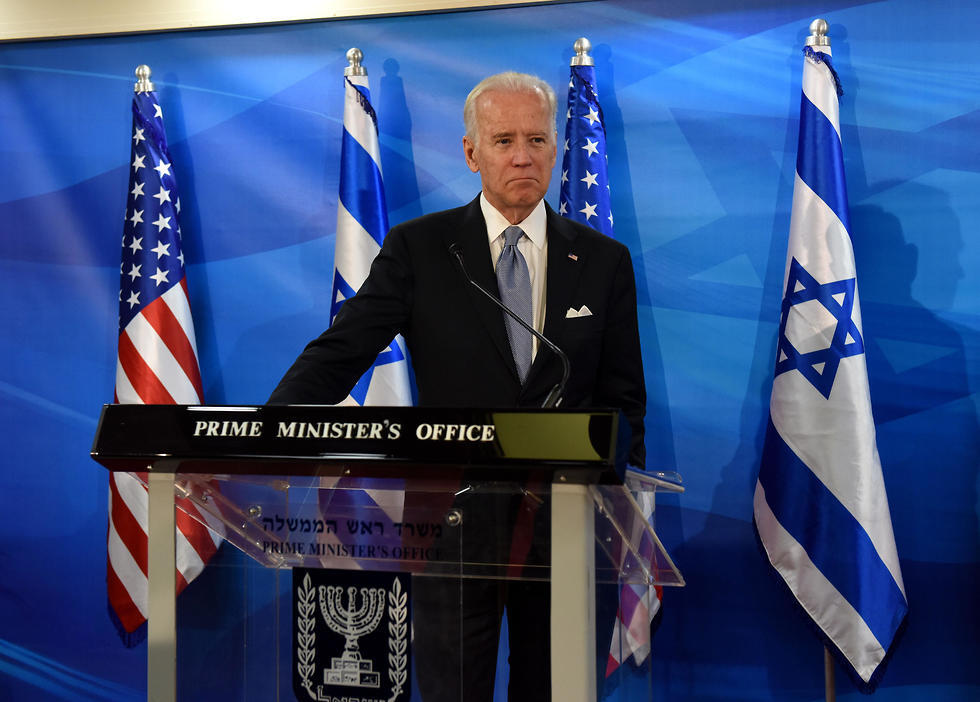Outgoing U.S. Secretary of State Mike Pompeo confirmed last week that he has met with his designated successor, Antony Blinken. Both have been trusted, loyal confidantes of their respective bosses.
And after Pompeo and his boss Donald Trump made it their stated mission to tear apart the foreign policy of the president's predecessor Barack Obama, President-elect Joe Biden and Blinken have been clear that much of those new policies will be obliterated in short order – except, perhaps, in the Middle East.
Recent normalization between Israel and parts of the Arab world – borne largely out fear of Iran’s influence in the region – means Biden and Blinken are entering much different territory than a mere four years ago.
“Biden knows more about foreign policy than any president since Richard Nixon,” says Brian Katulis, senior fellow at the Center for American Progress.
Katulis has advised senior U.S. policymakers on foreign policy, conducted extensive research on the ground in the Middle East and worked at the National Security Council and the State and Defense departments.
“The bigger question is how much Biden is going to want to have imprint on his own foreign policy and how he is going to marshal all these talents at his State Department,” says Katulis.
11 View gallery
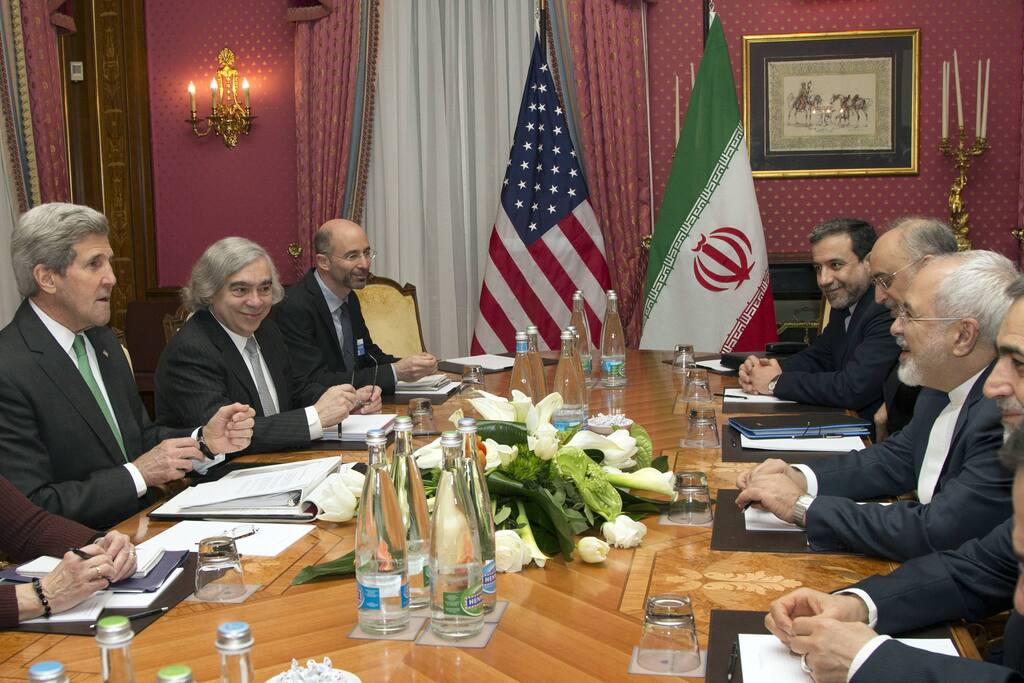

American and Iranian negotiators meeting on the nuclear agreement in 2015
(Photo: AP)
Priority No. 1 in the Middle East appears to be the Iranian nuclear accord, which the U.S. departed under Trump’s direction in 2018.
The Iranians have recently increased their uranium production and are now threatening to block the international inspectors’ access to nuclear sites if U.S. sanctions are not lifted within a month after Biden takes office.
Iran’s foes in the region are urging Biden to take their concerns into account and renegotiate the deal first, rather than re-entering the accord as it was and hoping for additional concessions later.
“We should have never pulled out of the Iranian nuclear deal, and we’ve got to go back to where we were,” says Rep. Gregory Meeks, the new U.S. House Foreign Affairs Committee chairman.
“Iran needs to go back into compliance, and that’s the beginning of negotiations, not the end," he says.
"We didn’t make ourselves safer by pulling out. We had more knowledge of what was going on with their nuclear program on the ground than we ever had. I traveled and asked our allies whether Iran was violating the deal, and they said no.
"Now, I’m not foolish, either. We know of a number of things outside of the agreement that Iran was doing. Looking at ballistic missiles, sponsoring terrorism – so we have other avenues like sanctions to prevent that from happening.
"The whole and one focus of the JCPOA [Joint Comprehensive Plan of Action] was to prevent Iran from obtaining a nuclear weapon. We can do more than one thing at a time. But, the focus of the JCPOA was a nuclear weapon, and we can focus on that while also preventing Iranian actions elsewhere.”
The end-of-arms-embargo provisions of the deal in October left America isolated as its European allies simply ignored the State Department’s aggressive maneuvers to keep the embargo in place through international forums like the United Nations.
But Biden may very well opt to take a different route.
“The JCPOA was a deal and it required concessions on both sides, but we believe the concessions we made on the arms embargo were worth it compared to the concessions that Iran made given their nuclear program,” says Jarrett Blanc, senior fellow in the Geoeconomics and Strategy Program at the Carnegie Endowment for International Peace.
Blanc was previously the deputy lead coordinator and State Department coordinator for Iran nuclear implementation.
“I don’t think the Trump Administration was concerned about the end of the arms embargo, because if they were, they wouldn’t have blown all their diplomatic capital in New York [at the United Nations], but instead do quiet diplomacy with the few countries that could sell the systems we are concerned about and convince them to impose restrictions," he says.
"This is what the Russians did with the S-300, which isn’t covered by the embargo, so I think the Trump Administration wasn’t making a sincere effort.”
Gulf allies seemed troubled by Biden’s selection of Wendy Sherman, the nuclear deal’s negotiator, as his deputy secretary of state.
Her boss, Blinken, appears, though, to be someone Israel and its Gulf allies feel they can deal with, even though they certainly won’t get the same unlimited backing they received from Pompeo.
“Blinken will bring a quieter, steadier, less photo-op type of diplomacy,” says Katulis.
“It will be a genuine effort to try to listen and be very practical about what can be achieved. Pompeo stated maximalist positions. Blinken will try to hit singles rather than swing for the fences and overinflate expectations. It would be wise to engage Gulf states in conversation.
"One of the shortfalls in the first negotiation was not including Israel and the Gulf states, because it would have complicated negotiations. A sustainable deal must have the confidence of America’s partners and allies, and take more deeply into account their concerns,” says Katulis.
11 View gallery
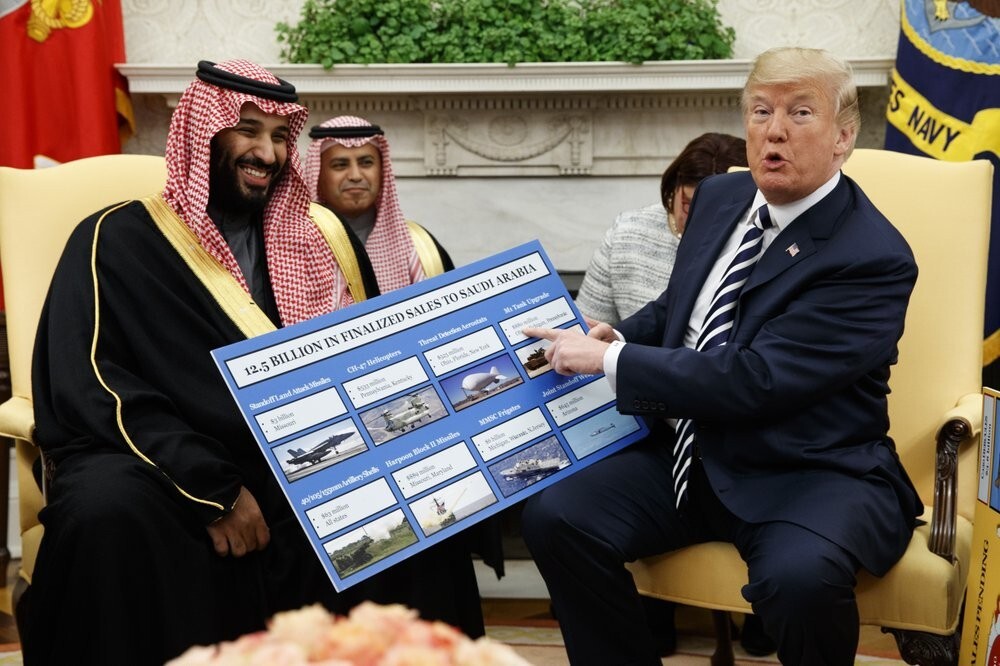

U.S. President Donald Trump shows off arms sales to Saudi Arabia at a White House meeting with Saudi Crown Prince Mohammed bin Salman
(Photo: AP)
Biden, though, has already made his severe distaste for Saudi Arabia known, calling its government a “pariah” for its domestic human rights abuses, its devastating military campaign against the Iran-backed Yemen Houthi rebels and its killing of dissident author Jamal Khashoggi, a U.S. resident.
Trump gave the Saudis near-limitless backing and the kingdom will now have to go a long way to try to win over Biden and Democrats (and some Republicans) who want to dramatically alter or end the alliance between the two nations.
“So much of this depends on how the Saudis react,” says Katulis. “This is part of America’s conversation. Put all the issues on the table, and if the Saudis react that they won’t have better strategic partners elsewhere, it’s an opening to a more functional relationship.
"Trump’s unpredictable nature, like no reaction to the Iranian oil facility attack and other mixed signals, ultimately confused Riyadh and created a deep unease in the bilateral relationship,” he says.
Meeks, though a supporter of the Abraham Accords normalization agreements, wants to see a halt to arms sales that were part and parcel of the agreements, specifically a monumental sale of arms to the United Arab Emirates, a U.S. and Israeli ally trying to fend off Iran, and a Saudi partner in the war against the Houthis.
11 View gallery
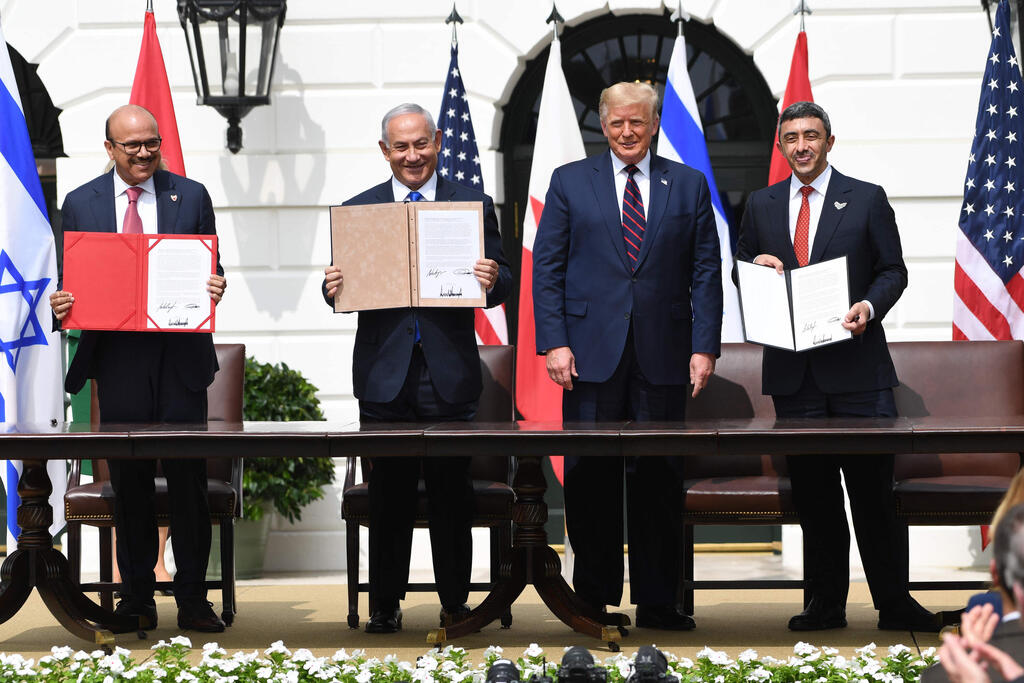

L-R: Bahrain FM Abdullatif al-Zayani, PM Benjamin Netanyahu, U.S. President Donald Trump, and Emirati FM Abdullah bin Zayed Al-Nahyan at the signing of the Abraham Accords at the White House, Sept. 2020
(Photo: AFP)
“We agreed to give Israel a qualitative military advantage in the region, and that means having the best weapons,” says Meeks. “There is no other country in that region that should have better weaponry.”
When it is pointed out that Israel agreed to the arms sales to the UAE, Meeks says there is still a level uncertainty surrounding the stability of some regimes in the region and what could come next.
“What happens if something goes wrong in one of the Arab states? Then, they have the weapons already and they would have the QME or a level playing field. I don’t have the certainty of knowing what happens tomorrow. I’ve seen before where a new government takes over and they use the weapons for nefarious purposes. I don’t have to worry about that with Israel.”
While some in the Democratic foreign policy apparatus dismissed the recent normalization successes between Israel and the Arab world, Meeks called it a milestone, and now says he hopes it will lead to a push for an agreement between Israel and the Palestinian Authority.
The PA cut off relations with the U.S. after Trump’s recognition of Jerusalem as Israel’s capital, defunding of Palestinian aid and the closure of the Palestine Liberation Organization mission in Washington.
11 View gallery
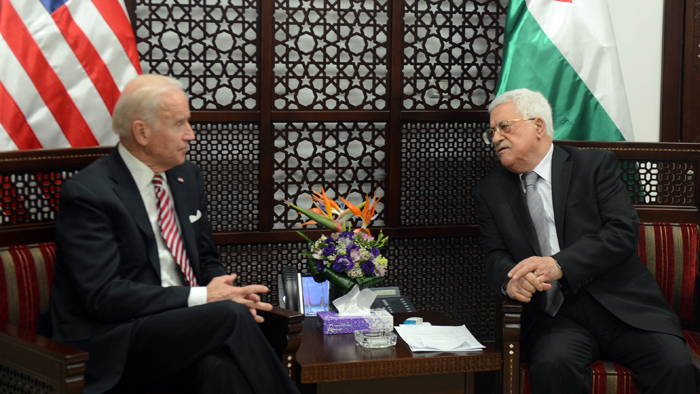

Then-U.S. Vice President Joe Biden meeting with Palestinian President Mahmoud Abbas in Ramallah in 2016
(Photo: Archive)
“I wondered for the longest time why the Arab world didn’t recognize Israel’s existence, and that emboldened the Palestinians not to come to the table,” Meeks says.
“Now, with the Abraham Accords, it’s my hope that Arab nations will push the Palestinians to negotiate so that we can have a two-state solution and peace in the Middle East. The recent developments should help us get to the next level,” he says.
Meeks is still of the notion that the two-state solution can work, though vague about how it could best come about.
“We came close to peace in the Clinton Administration. The Palestinians walked away. But we need to keep trying,” he says.
The Palestinians not only walked away but launched the Second Intifada, during which time it standardized its long-running practice of paying salaries to its terrorists who kill and maim Israelis.
The pay-for-slay scheme eventually led to the 2018 passage of the Taylor Force Act, named for an American victor of Palestinian terror and which stopped American economic aid to the PA until it ceases paying those stipends.
11 View gallery


A 2016 memorial service in Israel for American terror victim Taylor Force before his repatriation
(Photo: Eli Segal)
Now, the PA is reportedly ready to amend its policy and support the families of prisoners based on financial need rather than on the length of the prison sentence imposed by Israel, thereby disincentivizing more heinous terrorist acts, in an attempt to circumvent the Taylor Force Act and re-establish relations with the U.S. under a Biden Administration.
“I think there’s got to be more,” says Meeks. “We have to allow the Biden Administration to get its diplomatic team in place, to replenish the State Department, and I think talks with the Palestinians will be done through back channels, but they will need to offer more than that,” he said.
Meeks is generally regarded as an establishment, centrist Democrat with a pro-Israel bent and his election has been celebrated in most pro-Israel circles.
Still, he ruffled feathers over the summer when he described annexation of West Bank land by Israel as "an anathema to a two-state solution."
"[T]he United States must be explicit in our opposition by applying pressure against Netanyahu should he annex territory, including leveraging U.S. aid,” he told The Times of Israel at a time when progressive Jewish groups were publicly laying out their demands in return for endorsing candidates to lead the Foreign Affairs Committee.
Meeks reversed course two weeks later, telling the American Jewish Committee, “We know the extreme importance in the region to make sure that Israel has the right to defend itself, and the dollars that we give Israel to defend itself [are] absolute and unequivocal.”
So, where does Meeks really stand?
“Let’s be clear: The MOU [memorandum of understanding with Israel] that the Obama Administration entered into is nonnegotiable. None of that money can be taken off the table. Israel has the right to defend itself and that money is nonnegotiable,” Meeks says.
The State Department has been brokering maritime border negotiations between Israel and Lebanon but ballooned Lebanese claims of its territorial waters appear to have sunk talks, at least for now.
11 View gallery
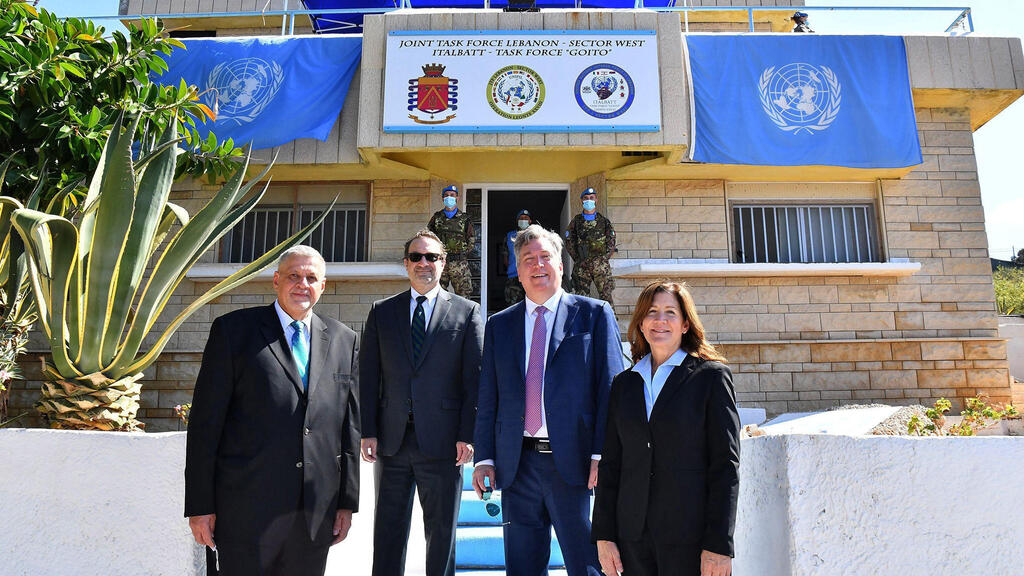

United Nations and American officials at the first round of talks on the Israeli-Lebanese maritime border in Naqura
(Photo: AFP/U.S. Embassy)
The Lebanese, including the Iranian-backed Hezbollah terror group, is trying to revive its battered economy, partially through offshore natural gas revenues that it might claim through a deal with the Israelis.
“I think Biden’s State Department will try to work by, with and through its partners, reducing its direct footprint in that effort,” says Katulis.
“We should be working with European partners more. It sounds like nation building but it’s not. It’s using leverage and diplomatic resources. It could be transformative and have a reverb effect. It would be wise to plant the seeds, and could eliminate a lot of threat toward instability,” he says.
One wild card in all this could be John Kerry, the former secretary of state, who will now answer to Blinken as the State Department’s first-ever climate envoy.
11 View gallery
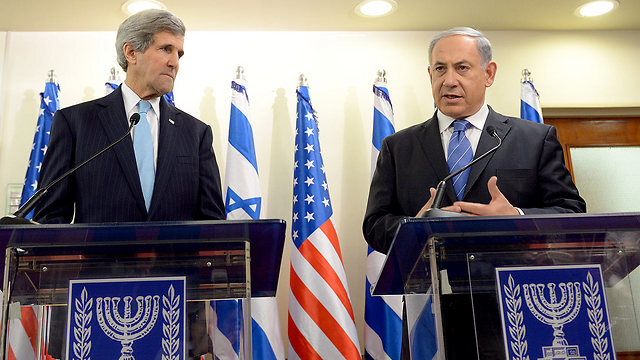

Then-U.S. Secretary of State John Kerry and Prime Minister Benjamin Netanyahu meeting in Jerusalem in 2014
(Photo: GPO)
Kerry now-famously and empathetically claimed there would be no normalization between Israel and the Arab world before a peace deal with the Palestinians came about. He was and is seen by Gulf states and Israel as overly friendly to Iran, and some in the region fear he will play an outsized role under Biden.
“I doubt it. Kerry is going to be really busy on climate. It’s daunting in and of itself. He will need to build relationships, rebuild relationships and deal with big issues like China,” says Katulis.
Biden’s foreign policy apparatus will be dominated by Obama Administration veterans. But, most experts seem to agree that Biden is not Obama 2.0, and that the policies of that era won’t fit in today’s new Middle East, anyway.


